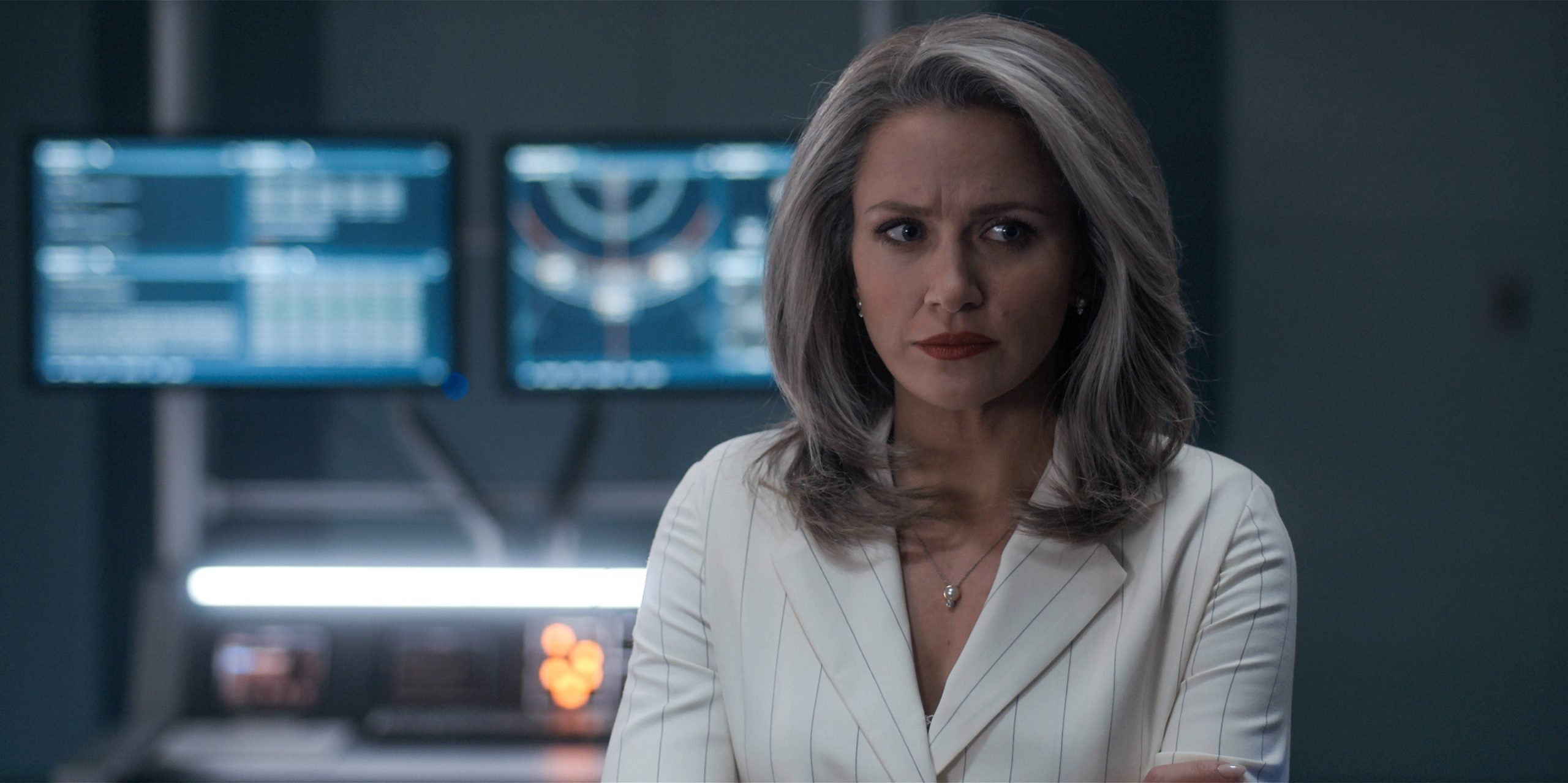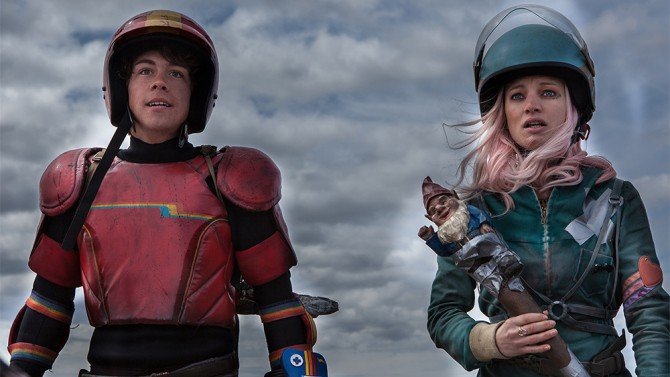For All Mankind (Season 3), Episode 1 Recap and Ending Explained: An alternate history tale needs a divergent point. For Apple TV +’s For All Mankind, the divergent point is minuscule, and yet brutally important. In 1969, Alexei Leonov, who was the first Russian cosmonaut to successfully execute a “spacewalk” in 1965, became the first person to lead a manned crew to the moon. The divergent point goes back further, according to series creator Ronald D. Moore, who explains how Sergei Korolev, the father of the Soviet Space Program, died during an operation in Moscow during the 60s.
His death caused the space programme in Moscow to deteriorate. The divergent point for “For All Mankind” was Korolev’s survival, putting the Soviet Moon programme together, and finally succeeding in landing the first man on the moon. The result is that the space race never ends, as the American Space Program (NASA) is forced to play catch up. Another significant addition in subsequent proceedings was the Soviet Union’s inclusion of diversity in inducting women astronauts in subsequent landings. the United States is forced to train women as well as minorities, who have been largely ignored so far.
Every season of For All Mankind takes place during a specific decade. While Season 1 begins with the tail end of the 60s and the beginning of the 70s, Season 2 jumps forward 10 years during the 80s. By that time, technology and, as a result, even social and political evolution occur. A new moonbase is created on the surface of the moon by NASA called The Jamestown Base. The moon itself gets divided between the US and the Soviet Union, causing a firefight at the end of Season 2 between US Marines and the Soviets on the surface of the moon, causing an unknown number of deaths and damaging the nuclear reactor cooling systems. Gordo and Tracy Stevens craft makeshift suits and plan to fix the nuclear reactor from outside. They are successful in doing so but die from vacuum exposure.
Elsewhere, the Apollo-Soyuz docking system is finally successful when astronaut Danielle Poole disobeys orders and manages to greet the cosmonauts within the orbital module, bringing forth the historical handshake. These are some of the major incidents that occur within the final moments of Season 2 which ends with a shot of 1995 and an astronaut walking on the surface of Mars.
*Spoilers ahead*
For All Mankind (Season 3), Episode 1 “Polaris” Recap:
Like the previous season, Season 3 begins with a 10-year time jump to the 90s. The episode begins with a montage of notable events leading up to the year 1992. It is mostly a blend of real historic events mixed with the fictional extrapolation of events in the show. A lunar peace treaty is signed by President Ronald Reagan and Premier Yuri Andropov, essentially dividing the moon into two—one half belonging to the USSR, while the other remains with the US. The Soviet Union’s policies are gaining traction all over the world, with a notable influence on Latin America. Amongst all this, Dev Ayesa (Edi Gathegi), a new scientific visionary, crafts a nuclear fusion reactor with Richard Hillard. Former astronaut Ellen Wilson (Jodi Balfour), now a Republican senator, has entered the presidential race. Karen Baldwin (Shantel Van Shanten) and Sam Cleveland (Jeff Hephner), the late astronaut Tracy Stevens’ ex-husband, join forces and invest in space tourism, launching the Polaris Orbital Hotel.
China plans to launch a new moonbase. Dev Ayesa, who now heads Helios, a multi-million dollar conglomerate, wins a mining contract on the moon from NASA to mine deposits of Helium-3 on the moon, an ideal resource for nuclear fusion. The North Korean government joins the space race by focusing on its space programme and abandoning plans to build another ballistic missile. Due to nuclear fusion becoming viable, global warming has slowed due to less reliance on fossil fuels. The cold war is still in full swing, however, as listening devices were discovered in the American Embassy in Moscow. A movie based on the lives of Gordo and Tracy Stevens premiers, starring Meg Ryan and Dennis Quaid, while Donald Trump meets Premier Gorbachev in a bid to build luxurious condominiums in the Soviet Union. The Thomas Paine Space Telescope would be launched into orbit aboard the Pathfinder, while the United States announced their plans to go to Mars by 1995, NASA unveiled plans for the Soujourner 1 spacecraft. As the presidential race between Wilson and Clinton heats up, the economy sees a boom due to the ever-increasing rise of the space age.
The montage finally ends with the reveal of Karen Baldwin waking up and walking to the window of her room, where we see a visage of Earth, as the camera pans out and we are presented with the first view of the Polaris Orbital Hotel, the space counterpart of a five-star hotel.
Margo Madison is still the mover and shaker at NASA with a zero life balance. She wakes, up, showers and changes at the office itself (she has a bedroom adjacent to her office). As the day begins, we learn a couple of important things from Margo’s assistant as well as her right-hand woman. — 1. Ayesa has been unsuccessful in convincing NASA to prioritize his space launch to the moon for mining Helium-3. 2. The North Korean space programme is moving comparatively slower, having managed to reach orbit this time, but the upper stage spacecraft exploded and now debris is currently floating in orbit. 3. The Space Orbital Hotel is holding a wedding reception today before officially launching next month.
At mission control, now re-titled Mars Mission Center, we learn that Aleida Morales (Coral Pena) is still one of the chief engineers working at NASA, and she is the resident expert at building and decoding the NERVA Engine (Nuclear Engine Rocket for Vehicular Application), which is still unable to function without causing coolant issues and closing down abruptly. As Margo advises Aleida to keep digging and find a solution, we come to know that the Soviet Union was planning to launch a manned mission to Mars in 1996, to repeat the feat of being the first nation to set foot on another new frontier. It is an interesting wrinkle, made all the more interesting and yet more terrifying as we come to know that Margo has still maintained contact with Sergei Nikulov, the head of the USSR space division, since Season 2. They had been passing scientific discoveries to each nation to keep the space race alive and viable, but it could only end in one way. And that doesn’t seem to be a good one, as we see the KGB pressuring Nikulov to learn more about the nuclear engine specs from Margo.
Later in the episode, we learn that Aleida has settled down with a man named Victor and has started a family. Her father, Octavio, also stays with them, much to the chagrin of Victor. After dinner, Margo looks at some of the modifications Aleida plans on implementing in the NERVA and, impressed with her ingenuity, appoints her to go to Jamestown Base on the next scheduled Apollo space flight, to lead the technicians and make the correct modifications to the engine within the necessary tolerances, much to the surprise and happiness of Aleida and her family. It is interesting and heartwarming that even in a universe where the moon trip has become a relatively common occurrence, it is still “a giant leap for mankind.” It also shows the utopian viewpoint of NASA as the one place where an immigrant like Aleida could achieve this much success due to sheer hard work and her ingenuity, even as privatisation of space looks to be an inevitable follow-up.
But we finally come to the main stage, which is the Polaris Orbital Hotel, which will host the marriage ceremony of Danny Stevens, the son of Gordo and Tracy Stevens. The chief guests are Ed Baldwin and his new wife, Yvonne, and Dani Poole and her new husband and son. The astronauts are highly impressed with the slick setup of Polaris Hotel (which promises a fitness centre, a cafe and room service) even as the dubious setting of space tourism, which Polaris is not shy of advertising, holds them at bay.
The veterans of the first iteration of Jamestown Base are pleased with the accommodations but more interested in leading the subsequent Mars Mission, as evident by the jocular tone of the conversation between Ed and Dani, not hiding the undercurrent of competition. A similar form of conversation is being held at the same time between Margo and Molly Cobb, who is responsible for shortlisting the candidates for the Mars Mission. While Margo is very much in favour of selecting Dani Poole for the job of Commander, as she has a lot more tools in her toolshed, being a scientist as well as an astronaut, Molly favours Ed because of his experience as a test pilot. The resulting bickering brings the question of automation to the forefront; if navigation and space travel becomes automated, are test pilots becoming a dying breed? This is a question that I feel will be explored in the coming episodes.
For All Mankind (Season 3), Episode 1 “Polaris” Ending Explained:
However, the true strength of Polaris as an episode rests in how quickly it becomes a disaster movie. It was a far cry from the previous season’s openers, which had been slower setups. While “Polaris”, the episode is still set up, the disaster doubles as both an exciting and terrifying incident, and, knowing the writers of the show, it would not be just a one-off event. As the marriage ceremony ends and the party begins, one of the thrusters, which is responsible for rotating the Polaris at the optimal speed to maintain the centripetal force to ensure perfect artificial gravity, starts malfunctioning because of stray debris from the North Korean rocket floating around in orbit.
The result is that the artificial gravity ever so slightly increases as the Polaris starts spinning faster. Sam and Karen try to keep quiet about the situation and send two astronauts to manually repair the thruster. While implementing the spacewalk, the astronauts are thrown out of the platform by two of the dislodged cables holding the structure together. As the bride and groom doll start embedding itself into the wedding cake, the drunk guests start feeling the weight. As the G-forces started to compound, one of the cables hit the glass windows of the Baldwins. Barely surviving getting depressurized, Ed manages to escape the room with his wife, but not before breaking his leg. Meanwhile, during the evacuation, Sam tries to bring one of the elevators to the lobby of the hotel, but the compounding effect of the G-forces causes a malfunction in the sensors of the elevator, and the elevator crashes, killing Sam inside.
Meanwhile, an injured Ed and his wife meet Danny and his newly wedded wife. As the g-forces start inching perilously close to 4G, the maximum force which the structure can withstand, Danny decides to climb the elevator shaft and attempt a spacewalk alone, even as Ed states, “It will be like carrying two people.” While it is baffling how quickly Danny manages to get into the spacesuit to attempt the spacewalk at 3G, the consequent scene is a thrilling one where Danny walks up to the end of the malfunctioning thruster, barely managing to dodge the huge dislodged cables, hang down, open the control panel of the thruster manually, and use a spanner to manually close the thruster, just before the artificial gravity hits 4G. The episode concludes with gravity returning to normal and Danny clinging to life with the cable tied around his spacesuit as the Polaris Hotel resumes normal operation.
For All Mankind (Season 3), Episode 1 “Polaris” Review:
For All Mankind is still stuck between the two differing tones-a very insular family drama and yet a very expansive science fiction. While its pleasure in remixing true history with fictionalised additions is fun to watch, Season 3 shows the first instance in which the show is willing to chart a new course.
In the real world, a space hotel might open in the year 2027. Here, though, are the steps to ensure that a marvel of technology or even something as audacious as a Mars Mission feels plausible because the basic checkmarks of the big picture are already presented to us. The hard sci-fi of this science fiction thus feels not too removed from reality, while the disaster movie aspect of this episode both jump-starts the show as well as reinforces that for all the technological advances, space is still a very unforgiving final frontier, where anything might happen that hasn’t been calculated or predicted upon. I can’t wait for next week after such a strong start to the season.











![1987: When the Day Comes [2018]: Fantasia Film Festival Review](https://79468c92.delivery.rocketcdn.me/wp-content/uploads/2018/07/1987_-When-the-Day-Comes-2-768x432.jpg)